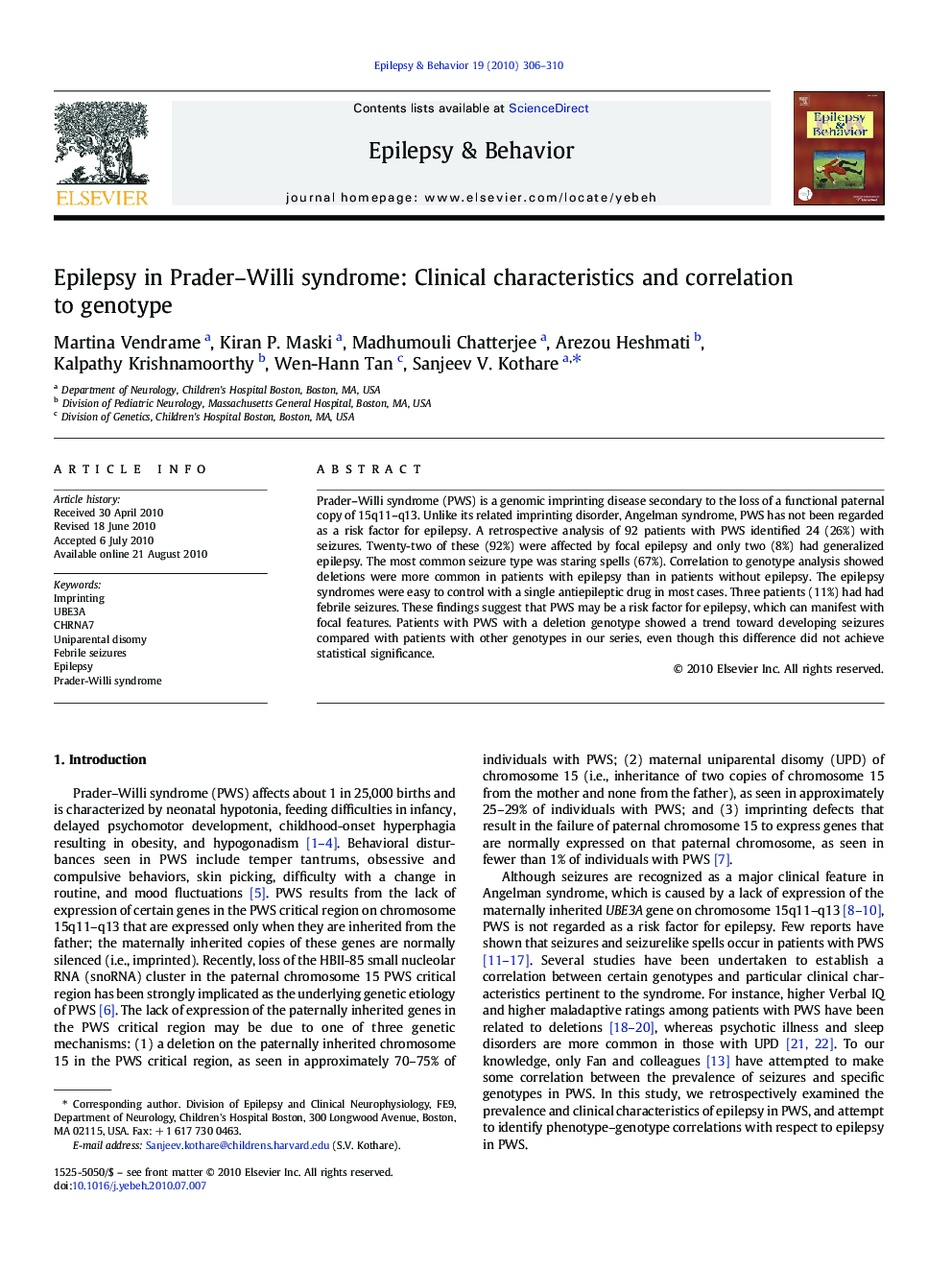| Article ID | Journal | Published Year | Pages | File Type |
|---|---|---|---|---|
| 3050079 | Epilepsy & Behavior | 2010 | 5 Pages |
Prader–Willi syndrome (PWS) is a genomic imprinting disease secondary to the loss of a functional paternal copy of 15q11–q13. Unlike its related imprinting disorder, Angelman syndrome, PWS has not been regarded as a risk factor for epilepsy. A retrospective analysis of 92 patients with PWS identified 24 (26%) with seizures. Twenty-two of these (92%) were affected by focal epilepsy and only two (8%) had generalized epilepsy. The most common seizure type was staring spells (67%). Correlation to genotype analysis showed deletions were more common in patients with epilepsy than in patients without epilepsy. The epilepsy syndromes were easy to control with a single antiepileptic drug in most cases. Three patients (11%) had had febrile seizures. These findings suggest that PWS may be a risk factor for epilepsy, which can manifest with focal features. Patients with PWS with a deletion genotype showed a trend toward developing seizures compared with patients with other genotypes in our series, even though this difference did not achieve statistical significance.
